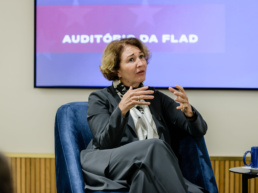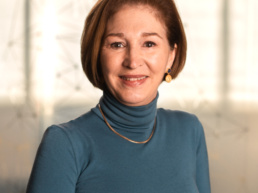Comedy, history, science fiction and biographical dramas… In the world of series there is something for all tastes, shapes and formats. That’s why we leave you with 10 series suggestions for political junkies to prepare for the intense movement that will be the road to the American presidential elections, on November 5th.
Yes, Minister (1980)
James Hacker is appointed Home Secretary and gloriously occupies the new position. But it’s not all roses – James has two collaborators with very different personalities – a Chief of Staff and a Secretary. James tries to get off to a brilliant career as a Minister, taking the usual steps of reducing expenses, but is met with fierce and sarcastic opposition from his chief of staff, Sir Humphrey Appleby, who always ends up reverentially replying “Yes, Minister”. A well-known BBC series, with excellent performances by Paul Eddington, the Minister, Nigel Hawthorne, the Chief of Staff and Derek Fowlds as the Secretary, Bernard Wooley. Hilarious and desperate, almost as much as realistic in the contradictions of politics. One of the best political satires on British television and the favorite television show of the then Prime Minister of the United Kingdom, Margaret Thatcher.
House of Cards (UK, 1990)
Long before Frank Underwood there was Francis Urquhart, the Machiavellian majority leader of the Conservative Party in the British Parliament. A member of the more conservative wing of the party, frustrated at not being promoted in the period when the more moderate members took over the leadership of the party – as a result of Margaret Thatcher’s resignation, Francis Urquhart puts in place a meticulous plan to overthrow his own prime minister and replace him in office, in line with Shakespeare’s play Richard III, that he so often cites. The coup plot is called into question by complications, including his relationship with a young journalist, which he himself uses for selective leaks. Considered one of the best series produced by British television.
The West Wing (1999–2006)
It’s a classic of television series, almost an example of what politics should be like in democracy in the minds of the most idealistic, at least in part of Aaron Sorkin’s long and incredibly well-written speeches. At the same time, a lesson in real politics, following two terms of President Jed Bartlet and his team, portraying countless scandals, threats, political squabbles, the costs of governing a country – personal and professional – and everything that politics brings with it.
The Thick of It (2005)
This series would be worth its time just for the way actor Peter Capaldi plays the role of the villainous spin doctor who terrorizes the life of the British government’s Social Affairs minister and his cabinet. In addition, you know who was there or followed it closely, that real life has eerily similar characters and episodes, and The Thick of It becomes fundamental for a political junkie. Especially if you want to laugh a little.
Borgen (2010 – 2022)
One of the most anticipated political series, with the curiosity of being a Danish series, Borgen quickly became an instruction manual on real politics, and everything that is wrong with it. The series tells the story of Birgitte Nyborg, who in the very first episode arrives, unexpectedly, the prime minister of the kingdom of Denmark – the first in office. From the personal dramas, the demands in politics and the promiscuity with the media, Borgen tells a story that comes to us on a daily basis only in fragments, through the news, poorly told: of what politics is really like behind the scenes, the ambitions and what is lost along the way. A year after Borgen went on the air, Denmark elected the first woman prime minister, Helle Thorning-Schmidt, a case of reality imitating fiction.
Game of Thrones (2011 – 2019)
Dragons, zombies, ice warriors, crows with three eyes. Everything in the description of Game of Thrones seems to rule out any possibility of this series being more than science fiction, albeit of high quality. But this saga set in the Middle Ages, inspired by the Wars of the Roses – a series of dynastic struggles that lasted between 1455 and 1485, and which was characterized by the bloody struggle of several families for the throne of England, is an unfiltered portrait of the struggle for power, without filters, scruples and moral limits. It quickly became a cult series and a model for the analysis of contemporary politics, whether in newspaper articles, scientific journals, master’s and doctoral theses, political speeches, etc. Peter Dinklage’s performances as the Machiavellian – and yet with more moral limits – Tyrion Lannister, the realism and brutality of Lena Headey and Nikolaj Coster-Waldau as leaders of the Lannister clan, or the corruption of absolute power, with the rise and fall of Emilia Clarke as Daenerys Targaryen make game of thrones an unavoidable series for anyone who loves politics.
Homeland (2011 – 2020)
A blockbuster that starts out more like fiction and begins to mimic reality as it progresses. Winner of 6 Emmys, Homeland tells the story of Sergeant Nicholas Brody who returns home a decorated hero after years in captivity, and who becomes a serious threat, and CIA agent Carrie Mathison, one of the best in her field of expertise while dealing with bipolar disorder. In addition to the personal dramas, and the intelligent thriller, Homeland is a true masterclass in terrorism and counterterrorism, portraying threats and true situations with high precision.
House of Cards (2013 – 2018)
“Sometimes I think we’ve gone too far, but then I watch the news,” said Kevin Spacey, who for much of the series played the role of the iconic congressman Frank Underwood, the villain of American political villains, and who eventually became a villain in real life. Together with Robin Wright, they formed one of the most iconic power couples in American political series, and they helped put Netflix on the map as a producer of original series.
The Crown (2016 – 2023)
It’s one of Netflix’s most successful series and has become a cult series across borders, with a fictionalized version of a biographical drama, of the most secretive – and perhaps most influential – modern family. The series tells the story of Queen Elizabeth II of the United Kingdom since her marriage, making a historical-biographical path of the main events of the second half of the twentieth century in the British crown, the relations between the queen and the different prime ministers, episodes such as Charles’ romance with Camilla, the drama with Diana’s death, among many others. Despite having a fictional component, the series attracted great interest also due to how imbued with secrecy the British royal family is, the political component, the historical transformations and the personal dramas of its elements.
The Diplomat (2023 – )
Another series for those who have a special interest in the foreign policy component, but more in the diplomacy aspect than in the spy thriller. The Diplomat portrays the journey of Kate Wyler, a career diplomat who likes more practical challenges and aspired to be placed in Afghanistan – the opportunity of her career that finally arrived – but ends up being diverted to the United Kingdom, in the middle of an international crisis, a position for which she does not have the profile and which could jeopardize her career and her political future. A thriller about the challenges and consequences of diplomacy.
Related Posts
October 16, 2024
Anne-Marie Slaugther: “in a time of polarization it’s really hard to be a moderate”
Optimistic about the results in…
October 3, 2024
‘2024: The Year of Democracy?’ with Anne-Marie Slaughter – October 15 at 6:30 pm
CEO of the think tank New America is…
September 24, 2024
Now available: ‘O Burro e o Elefante’ podcast first episode
'O Burro e o Elefante' is the new…


